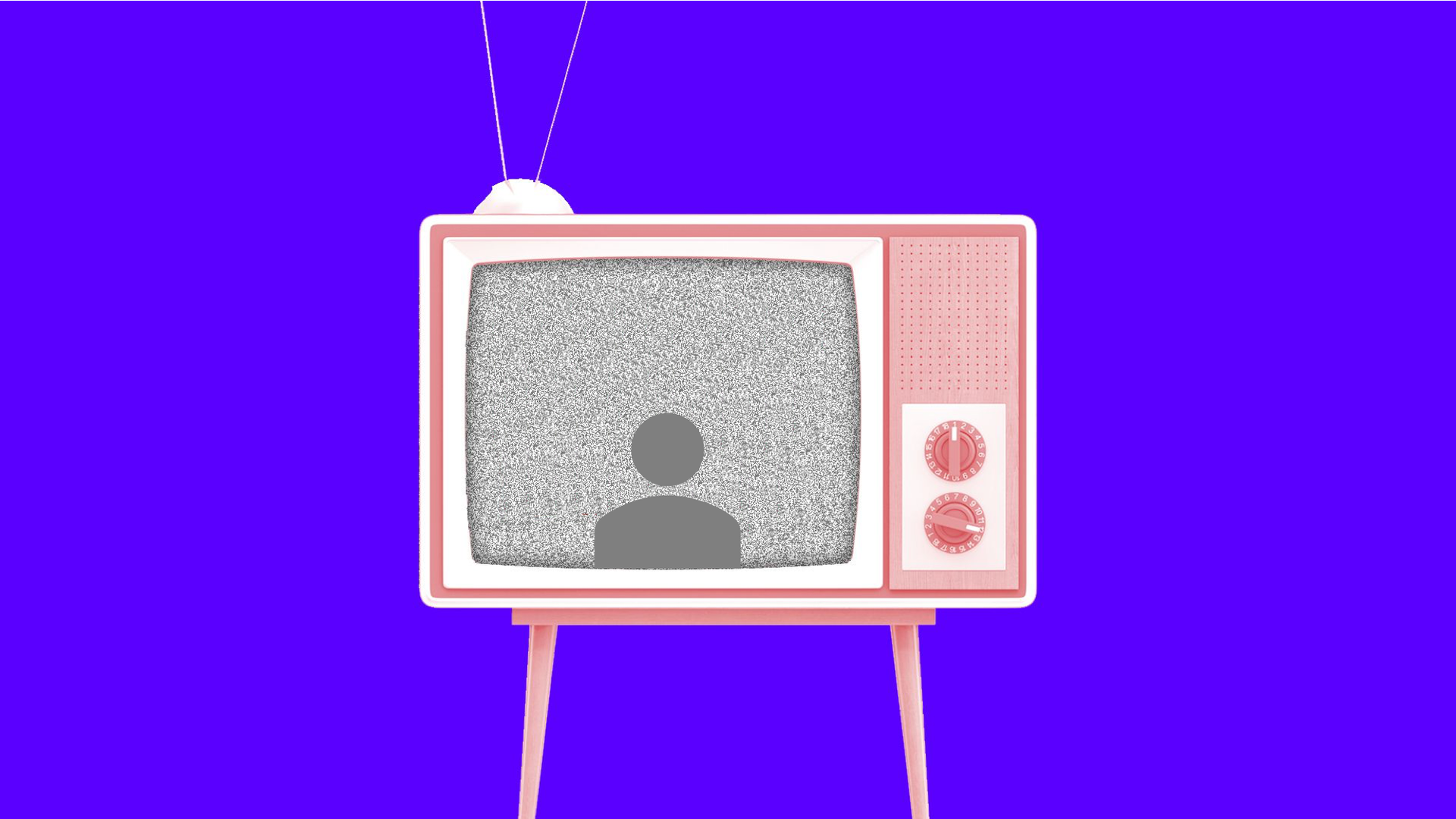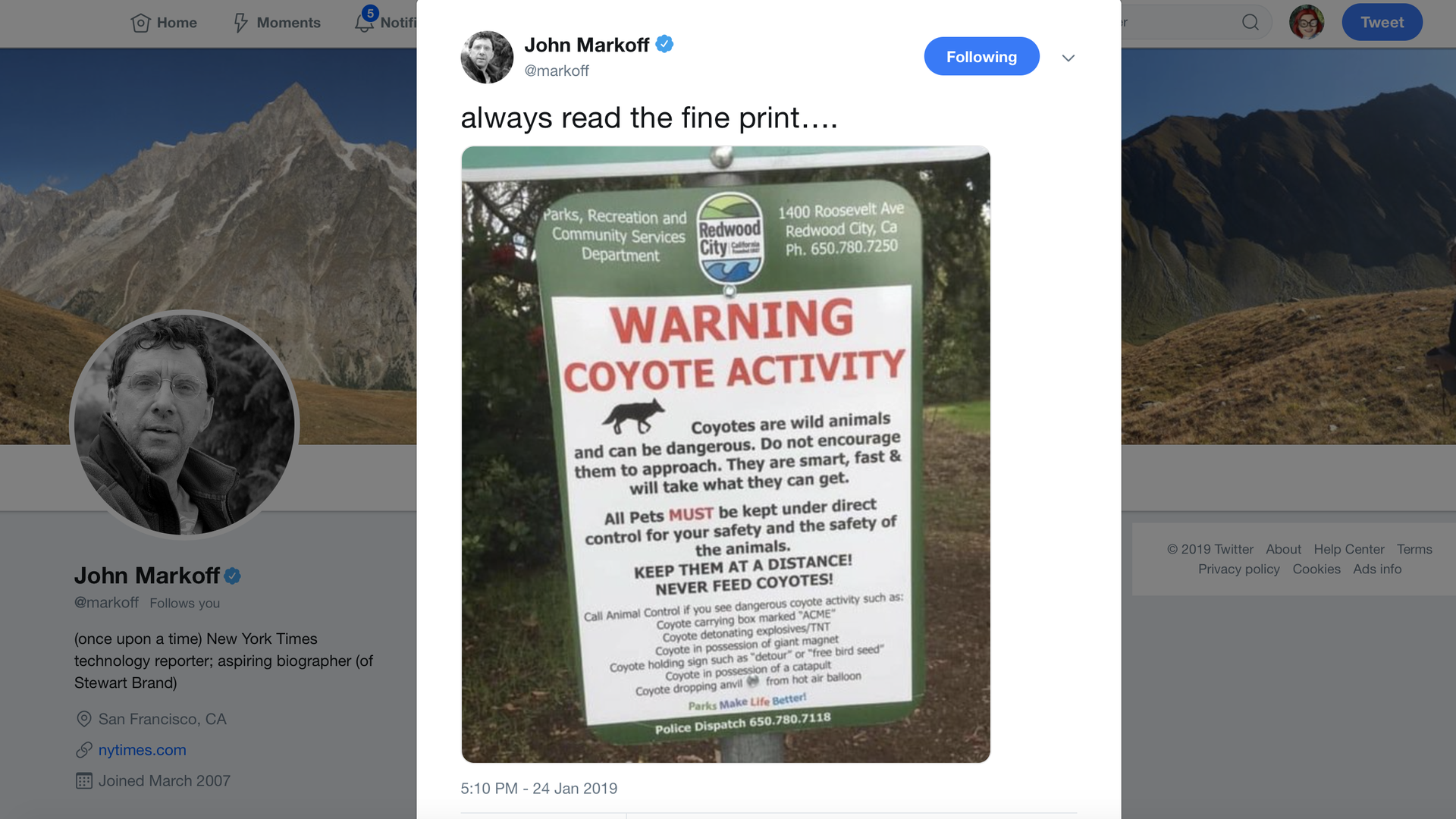January 25, 2019
Situational awareness: Facebook CEO Mark Zuckerberg plans to unify the infrastructure behind messaging services WhatsApp, Instagram and Facebook Messenger, the New York Times reports.
- A Facebook spokesperson tells Axios it's an early exploration of an effort to "make it easier to reach friends and family across networks," with many details still being determined.
1 big thing: Chips are down, and tech fears rise

Photo: Intel
Lackluster earnings forecasts from leading chipmakers suggests the tech industry might be in for a less than rosy 2019.
Why it matters: As key components of phones, computers and servers, chips can be a leading indicator of where the broader tech economy is headed.
- Intel on Thursday reported fourth quarter sales and a first quarter outlook that were less positive than analysts had been hoping for, sending shares sharply lower.
- A day earlier, Texas Instruments posted earnings ahead of estimates, sending its shares higher. However, its sales and earnings forecast for the current quarter was slightly below what analysts were anticipating.
Between the lines: As important as the numbers are, the companies' explanations for them reveal important information.
- Intel said last quarter's sales were hurt by a variety of factors, including weak business in China and a $200 million shortfall in expected modem chip revenue (which is tied to iPhone sales).
- TI said overall weakness that began in the third quarter continued into the fourth quarter, but it saw an even greater-than-anticipated slowdown in personal electronics, specifically smartphones.
The China factor: An Axios analysis found that 14 of the 20 U.S. companies with the most business in China are chipmakers. However, the same analysis also found that the entire chip sector is suffering, not just those firms with large China exposure.
Broader economy: Fears of a broader global slowdown also impacted the outlook from TI, as well as other chip companies including contract manufacturer TSMC and Korea's SK Hynix.
Yes, but: Some analysts see signs of a bottom forming, suggesting chip sales could rise in the second half of the year.
"While macro uncertainty adds risk, we see Texas Instruments and the industry under-shipping end demand for the first time since [the first half of 2016] —historically a bullish tactical indicator."— John Pitzer, Credit Suisse analyst, per TheStreet.com
2. Personalized ads, coming to a TV near you

Illustration: Axios Visuals
The hottest new trend in TV tech is "addressable" ads, or TV ads that can be targeted to specific households via user data. By the end of this year, almost every major TV network and provider will have rolled out their version of an addressable ad product, Axios' Sara Fischer writes.
Why it matters: It's a huge departure from the way TV ads have been bought and sold for decades. Struggling networks hope personalized ads will make the TV experience better for users who are ditching TV for ad-free streaming services like Netflix — and they're also drawn by the opportunity of a digital advertising market that isn't already controlled by Google and Facebook.
What's new: Traditionally, TV ads could only be bought and sold by gender and age — not demographics. This means that a cat lover could be served an ad for dog food, or a healthy person could get an ad for medicine. Addressable ads aim to make the messages more relevant.
Driving the news: Several big TV companies announced acquisitions or products this week that they think will make it easier for them to sell more addressable ads.
- NBC Universal says its new streaming service will create a lot of new addressable TV ad inventory.
- Hulu lowered the price of its ad-supported tier to be able to serve more addressable TV ads.
- Viacom acquired a digital ad-supported TV streaming company.
Here's how hot "addressable" is: AT&T says the ability to build an addressable ad product for its DirecTV and DirectTV Now customers was one of the driving factors in its decision to buy Time Warner last year for $85 billion.
How it works: TV networks and providers are using data from set-top boxes combined with data from digital networks to target ads to you that you might like.
- The beauty of these ads is that they tend to cost less because they reach a smaller, more targeted group of people.
- Because of this, smaller businesses can afford to buy national TV ads for the first time, lowering the barrier of entry to TV marketing.
Go deeper: Read Sara's full story.
3. Google's pro-worker rhetoric ends at courthouse steps
While Google’s executives were publicly stating their support for an employee walkout in November, the company’s lawyers were arguing to the National Labor Relations Board that it should roll back Obama-era rules allowing employees to organize via work email, according to documents obtained by Bloomberg.
Why it matters, part 1: Google made this argument as part of its defense in an unrelated labor case, but it’s hard to ignore that Google is saying one thing to the world, and something else in a courtroom.
Why it matters, part 2: If a court actually decided that Google's argument was correct and overturned the rule allowing workers to organize via workplace email, that would have big consequences not only for Google’s employees, but for all U.S. workers.
What they're saying: "Google is one of the most open workplaces in the world," a Google spokesperson said in a statement to Axios' Kia Kokalitcheva, adding...
"Employees have multiple internal forums to express their views, raise concerns and connect, including thousands of internal communities and tens of thousands of email groups. We’re not lobbying for changes to any rules. This was a legal defense that we included as one of many possible defenses in the response to a charge. This case is without merit and we are defending the claim vigorously.”
Our thought bubble: Tech executives want to show that they're on the side of the angels. Lawyers aim to protect their clients' interests — and they're representing management, not workers.
4. Media blitz from Twitter and Facebook CEOs
Twitter and Facebook executives are on extended media messaging campaigns to shore up their companies’ sagging public images.
What's happening: Twitter CEO Jack Dorsey has been on a media blitz, talking with The Ringer, HuffPost and Rolling Stone.
- In the HuffPost interview, Dorsey again made clear that the "health" of the platform was Twitter's top priority, with a big focus on reducing harassment.
- In the Rolling Stone interview, Dorsey talked about how hard it is to just "get the Nazis off Twitter."
Yes, but: Many Twitter users and pundits dismissed the efforts, arguing for less talk and more action, as seen in this essay by The Verge’s Casey Newton.
Meanwhile: On Wednesday it was Zuckerberg's turn.
- The Wall Street Journal published an op-ed from the Facebook chief, arguing that Facebook's much-maligned business model — trading a free social network service for user data that helps target ads — is actually a Good Thing.
- The full-throated defense of the company marks a change in tone for Zuckerberg, who is famous for apologies and promises to do better.
Our thought bubble: If it’s true that Facebook has the right business model, then we still need Zuckerberg and Facebook to work out how highly targeted ads can coexist with privacy and democracy.
5. Take Note
On Tap
- The World Economic Forum wraps up in Davos.
Trading Places
- Tech trade lobby ITI named Jason Oxman as its new CEO.
- YouTube audience development executive Vanessa Pappas has taken a job as general manager of TikTok.
ICYMI
- The good news is, twice as many U.S. college students are taking computer science classes. The bad news is, now there aren't enough professors. (New York Times)
- An FCC auction for 5G-specific spectrum landed $700 million in bids. (CNET)
- Microsoft acquired another open source company, database firm Citus Data. (CNBC)
- Seattle's Lakeside, the private school where Bill Gates and Paul Allen went, is overhauling itself to prepare students for the jobs of the future. (Axios)
- Microsoft made the subscription versions of its Office apps available in the Mac App Store. (9to5Mac)
6. After you Login

This coyote warning sign was a great find by longtime tech writer John Markoff. And, as he says, the key is to read the fine print.